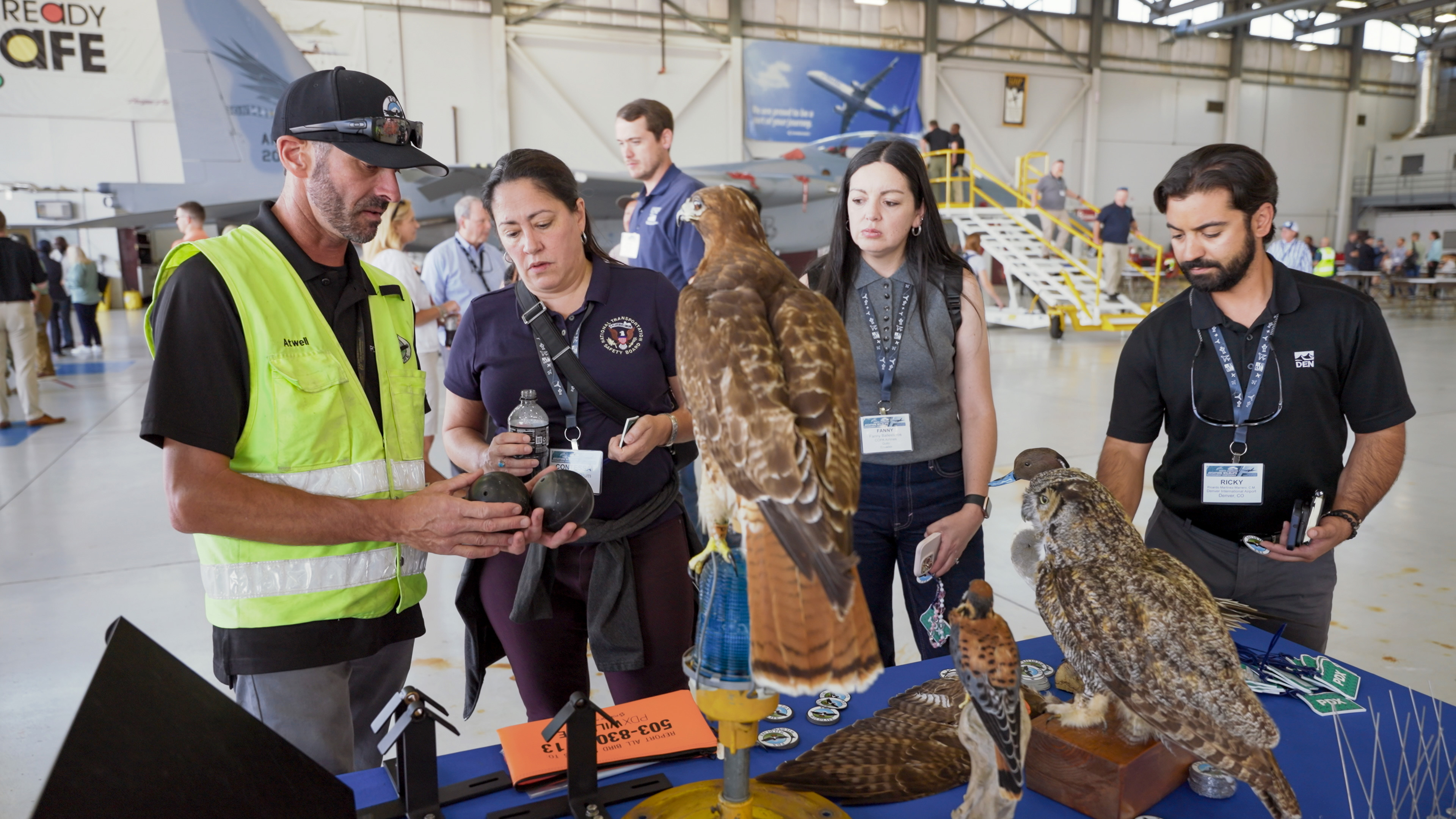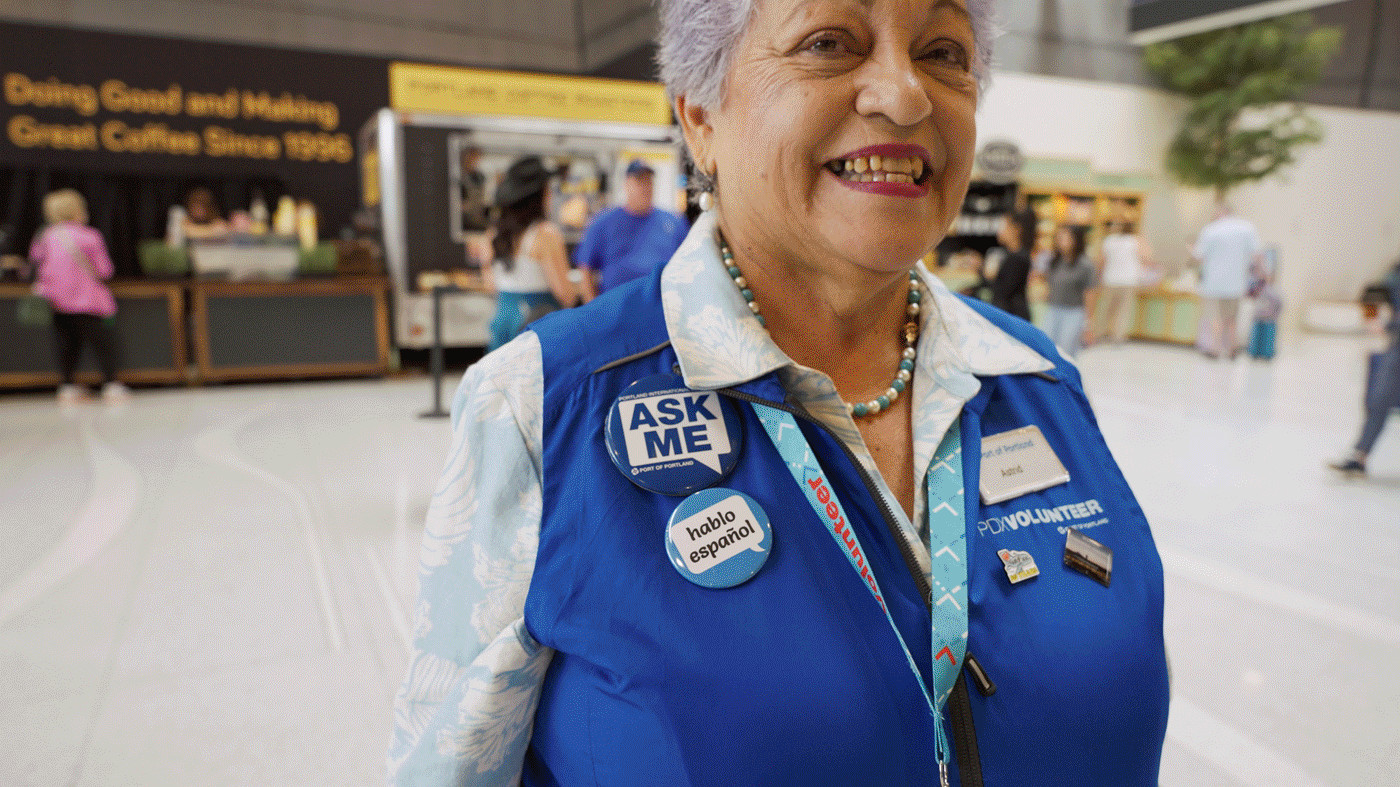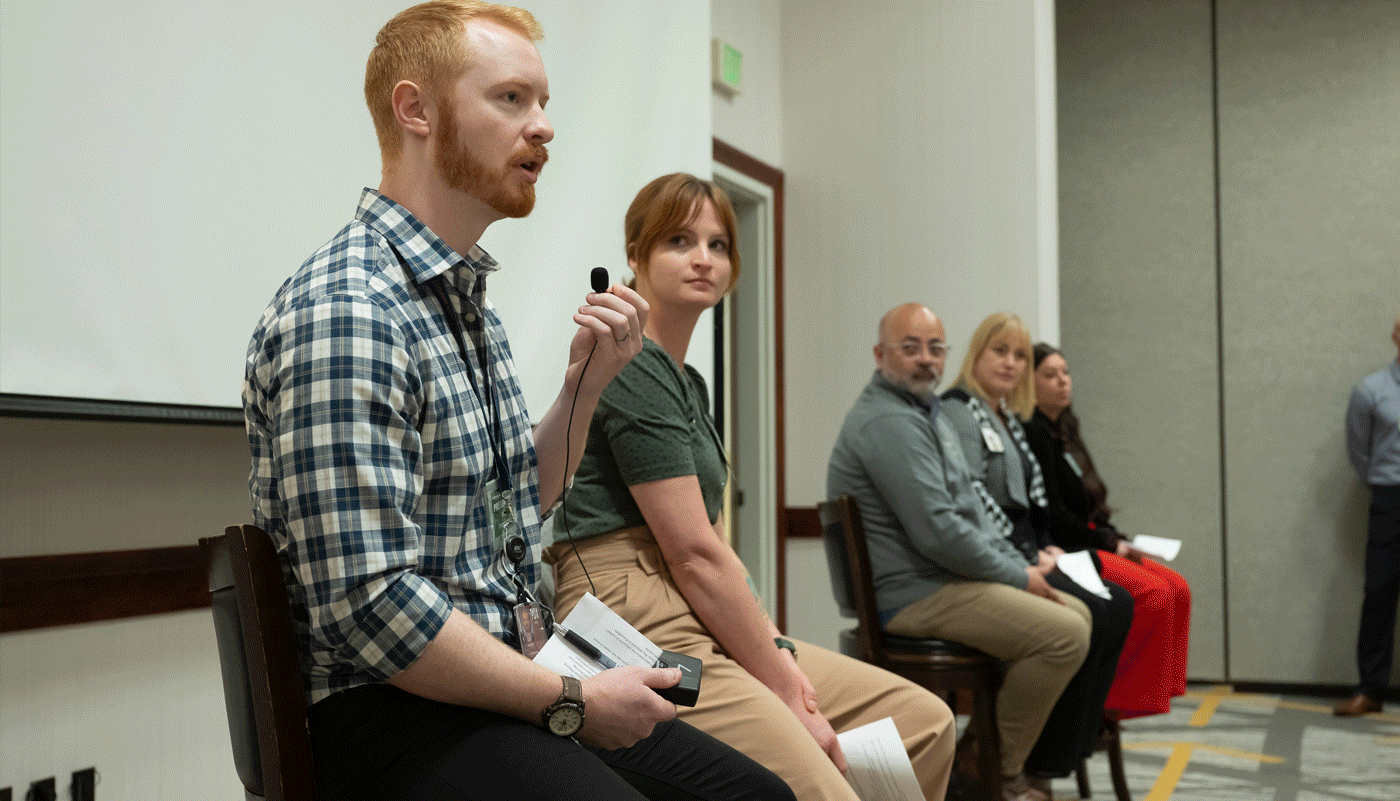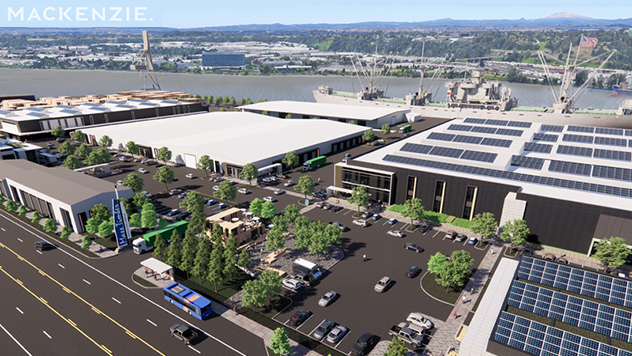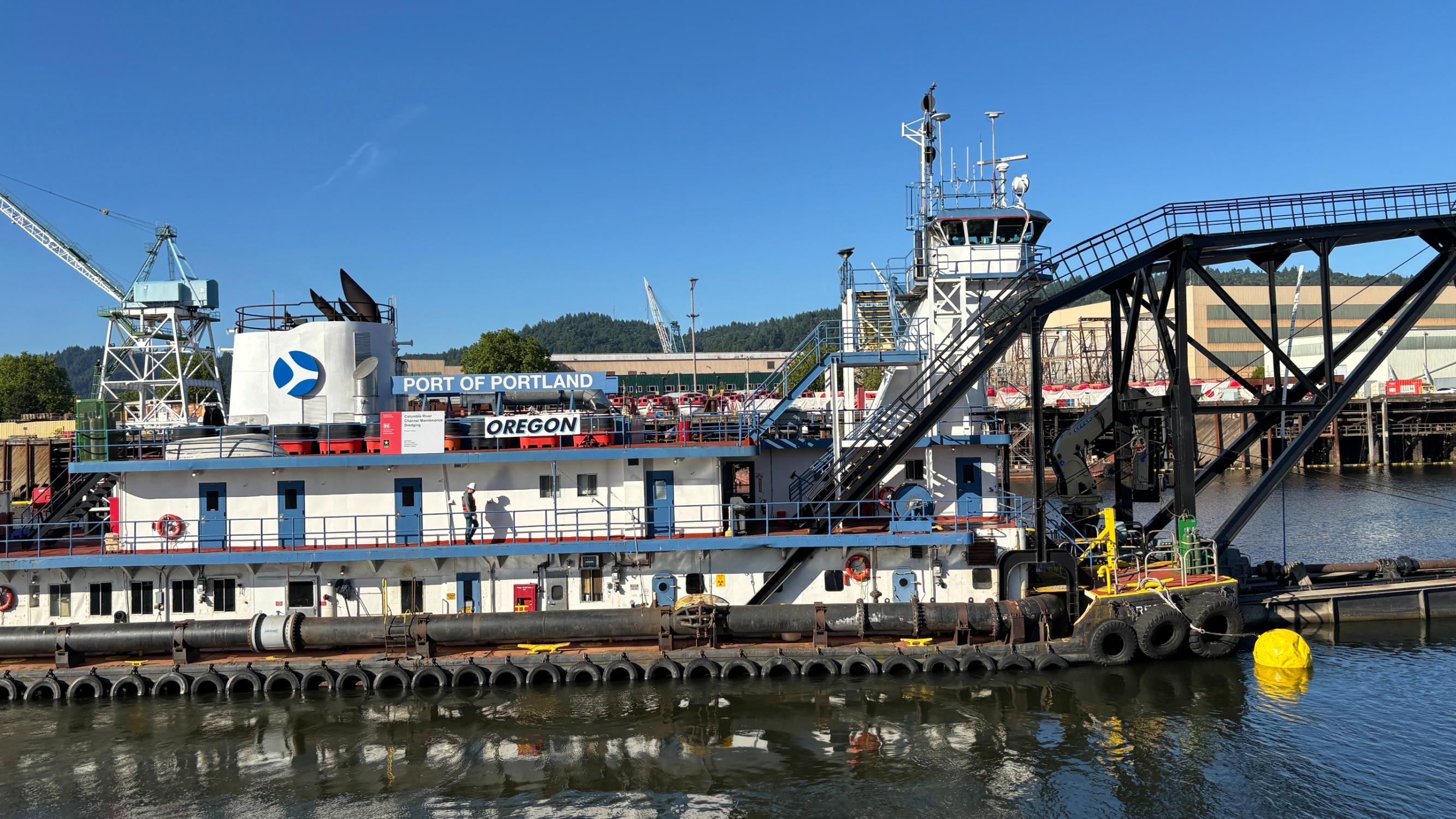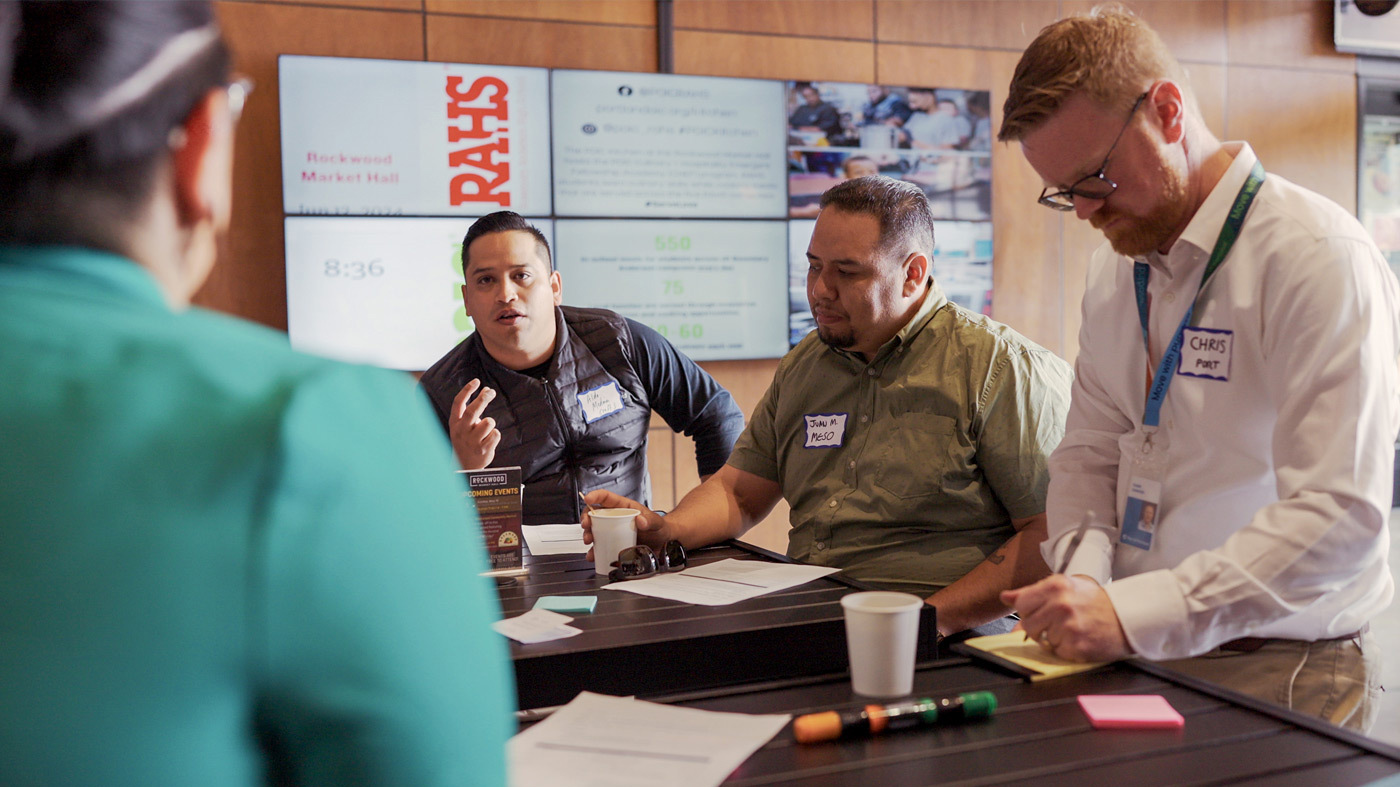CONTACTS:
- Port of Portland: Kelley Bonsall media@portofportland.com
- Business Oregon: Nathan Buehler nathan.buehler@biz.oregon.gov
- Oregon Dept of Forestry: Jim.gersbach@odf.oregon.gov
- DLCD: Kirstin Greene: Kirstin.GREENE@dlcd.oregon.gov
- U of O: Kay Jarvis: Kay Jarvis: kdjarvis@uoregon.edu
- OSU: Michael Collins: Michael.Collins@oregonstate.edu
The Oregon Mass Timber Coalition was named by the Economic Development Administration (EDA) as a finalist in the $1 billion Build Back Better Regional Challenge, the only finalist in the state of Oregon.
The coalition was awarded $500,000 to create a strategy for a Mass Timber Modular Manufacturing Facility at Marine Terminal 2 in Portland. The Oregon Mass Timber coalition is a partnership among the Port of Portland, Business Oregon, Oregon Dept of Forestry, DLCD and the Tallwood Design Institute (a partnership between U of O and OSU). The vision is to support Oregon’s emerging mass timber industry, grow regional economic development opportunities, create career pathways and business opportunities for struggling communities, and accelerate housing production.
The coalition will advance to Phase 2 and compete for up to $100 million in American Rescue Plan funding to develop and scale mass timber manufacturing in Oregon and the Pacific Northwest.
Curtis Robinhold, executive director of the Port of Portland, said, “We’re incredibly proud that the Mass Timber Coalition was selected to help drive economic recovery in our region. Accelerating the mass timber industry can be transformative for jobs, housing and equitable economic development in Oregon.”
The Oregon Mass Timber application was supported in a letter from the entire Oregon Congressional delegation, including Senator Ron Wyden and Senator Jeff Merkley, Congressman Peter DeFazio, Congressman Earl Blumenauer, Congresswoman Suzanne Bonamici, Congressman Kurt Schrader and Congressman Cliff Bentz. The letter highlights that the delegation “has worked collaboratively for many years to establish our state as a hub for mass timber products. This proposal to grow a regional cluster builds on past efforts to scale this industry and has the potential to revolutionize how America builds affordable homes.”
Congresswoman Bonamici said, “Creating local jobs, addressing our affordable housing crisis, and investing in sustainable forestry is a win-win-win for the people of NW Oregon and our region. Congratulations to the Port of Portland and its many partners for advancing an exciting project that was one of a select few across the country to receive Phase One funding from the Build Back Better Regional Challenge.”
Sophorn Cheang, director of Business Oregon, said: “Economic development is a team sport, particularly here in Oregon. The success of this proposal came from the strength of the coalition putting it forward, and the commitment to bring wins like this home to Oregon.”
Kyle Abraham, deputy state forester with the Oregon Department of Forestry, said: “We plan to use the grant funds to partner with federal land managers to restore forests near the 2020 Labor Day wildfires and provide wood fiber for mass timber construction. Mass timber and affordable housing create a great opportunity to make Oregon’s forests more resilient. By removing smaller diameter trees and converting them to mass timber destined for affordable housing we help protect communities from high-intensity wildfire and provide a much-needed housing solution.”
Judith Sheine, University of Oregon, Director of Design, TallWood Design Institute, said: “We are excited to be part of this unique opportunity to expand the mass timber sector in Oregon through the creation of affordable housing. This project has the potential to promote sustainable forest products, economic development and social equity, improving the lives of Oregonians throughout the state.”
Iain Macdonald, Director, TallWood Design Institute, OSU said, “Oregon is a national leader in mass timber construction. Build Back Better offers the chance to use that first-mover advantage as a springboard to catalyze a whole new industry sub-sector using mass timber for affordable housing. We look forward to putting our research expertise and facilities at Oregon State University and University of Oregon to work to support housing goals using mass timber.”
Jim Rue, Department of Land Conservation and Development Director, said, “The Department of Land Conservation and Development enthusiastically supports the mass timber industry-building initiative which holds so much progress for rural and urban communities throughout Oregon.”
The EDA challenge is assisting communities nationwide in their efforts to build back better by accelerating the economic recovery from the coronavirus pandemic and building local economies that will be resilient to future economic shocks. The Build Back Better Regional Challenge is the largest economic development initiative from the U.S. Department of Commerce in decades.
Phase 1 of the Build Back Better Regional Challenge invited coalitions to apply for funding to implement a collection of three to eight distinct but related projects in their region. Projects need to be in coordination with industry and community partners, and aligned around a holistic vision to build and scale a strategic industry sector.
EDA received 529 applications from regions in all 50 states and five territories, and the 60 finalists represent regions that formed extraordinary coalitions, demonstrated regional needs, and presented bold proposals to grow their target industry clusters.
In Phase 2, finalists will compete for significant implementation assistance. EDA will award 20-30 coalitions each up to $100 million. These awards will assist communities in executing ambitious plans to supercharge their regional economies across a variety of strategic growth sectors. The deadline for Phase 2 applications is March 15, 2022.
Learn more at eda.gov/arpa/build-back-better.
About the American Rescue Plan Programs
The Build Back Better Regional Challenge is one of many EDA programs aimed at building strong regional economies and supporting community-led economic development. Under the American Rescue Plan, EDA was allocated $3 billion in supplemental funding to assist communities nationwide in their efforts to build back better by accelerating the economic recovery from the coronavirus pandemic and building local economies that will be resilient to future economic shocks.
American Rescue Plan funding enables EDA to provide larger, more transformational investments across the nation while utilizing its greatest strengths, including flexible funding to support community-led economic development. With an emphasis on equity, EDA investments made under the American Rescue Plan will directly benefit previously underserved communities impacted by COVID-19. For more information about EDA’s American Rescue Plan programs, visit eda.gov/ARPA.
